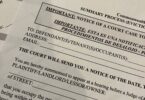By Shannon Larson
BU News Service
BOSTON — Massachusetts Sen. Ed Markey and actress Jane Fonda said they see clear parallels between the coronavirus pandemic and climate change, primarily what the consequences can look like if appropriate action is not taken to mitigate a crisis before it escalates.
The pair came together during a Facebook livestream Tuesday to discuss how lessons learned from the handling of the COVID-19 outbreak should be applied to the ongoing climate change crisis.
“We’re just learning with the coronavirus what happens when you ignore warnings, if you don’t act quickly enough,” Markey said upon introducing Fonda, a longtime civil rights activist, as a person who has been an “incredible leader on putting a spotlight on the climate crisis.”
Fonda has been hosting “Fire Drill Fridays” to bring awareness to the impacts of climate change. Her first virtual edition of the chat was hosted Friday.
Fonda said the pandemic has “laid bare” a number of issues both positive and negative. Among them, she said, the outbreak has displayed what happens “when there is not a strong central government with strong central leadership.”
“The COVID-19 pandemic crisis is going to go away,” Fonda said. “The climate crisis isn’t going to go away. We need a strong central government that is prepared.”
Dealing with Trump, where both the novel coronavirus and climate change are concerned, is almost impossible, Markey said. He referenced how the president initially dismissed the possibility of a pandemic, and the White House’s labeling of climate change as a “hoax.”
“It’s tough to deal with a man who doesn’t believe in climate change, who tried to say that all of this would kind of dissipate with the coronavirus as soon as we hit warm weather,” the Malden Democrat said. “He gets his degrees in science, I think, from Trump University.”
The crisis has demonstrated that not only are humans capable of changing their behavior when an emergency arises, Fonda said, but that public agencies “can come up with an awful lot of money when they see that there is a clear emergency,” despite claims from the “right wing” that bold climate policies would be too costly to enact.
On the topic of money and the latest bailout package Congress voted on, Markey said the government shouldn’t be operating under any misimpression that large portions of the “$500 billion slush fund” going toward the fossil fuel industry.
With the next stimulus package, Markey said there will be a “mighty battle” waged to ensure that the clean energy sector is also taken care of.
“There are no emergency rooms for planets,” Markey said. “There is not going to be a vaccine for climate change.”
The solar industry is already discussing “catastrophic” losses and layoffs this year and the following year, Markey said.
“From my perspective, this analogy is absolutely on point between coronavirus and the climate crisis,” Markey said. “It’s Mother Nature sending us a warning. We have to heed it.”
Markey is currently engaged in a battle for the progressive vote to maintain the seat in the US Senate he’s held since 2013, against Rep. Joseph P. Kennedy III. Markey has long made climate action a central part of his platform, with the Green New Deal being his most ambitious measure to date.
Because both candidates have been unable to physically campaign in the wake of the outbreak, they have each shifted their charge to virtual efforts.
As of early March, Kennedy maintained a narrow lead over Markey, according to a Suffolk University/Boston Globe/WBZ-TV poll of likely voters for the Sept. 1 primary.
While Markey has been fighting for stronger action in addressing climate change on a national level, his home state has pushed ahead with their own efforts to bring the issue to the forefront.
Massachusetts is often looked at as a national leader in terms of how Statehouse legislators have tackled climate change in the past, Markey said, but their most comprehensive and aggressive policy package, which was aimed at creating “next generation” climate policy, arrived at the end of January.
Markey acknowledged the role Massachusetts has striven to play in tackling both COVID-19 and climate change in his discussion with Fonda.
“We are Massachusetts,” he said. “We are trying to do our best to ensure that we lead in terms of social distancing, taking care of each other and making sure we protect our families but everyone else’s family as well. We can win this battle, but we all have to be in it together.”
Key provisions of the climate package include achieving net-zero greenhouse gas emissions statewide by 2050 and establishing a Massachusetts Climate Policy Commission.
It remains unclear how the pandemic will affect the policy package and its potential passing. The session is scheduled to end July 31.
In a brief interview with State House News Service, House Speaker Robert DeLeo said that no decisions had yet been made about meeting beyond that date. But he said it would be his recommendation that the session be extended should the Legislature still not have completed the budget, transportation financing or a climate change bill.
“I’d hate to change our rules,” DeLeo said, “but I think this may be one of those times.”





